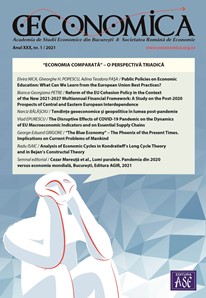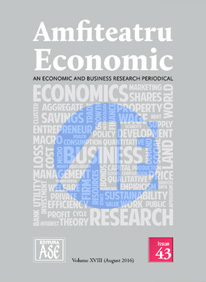
The “Czar” and the Sankt…ions Can wars be won just by a stroke of the pen?
Judging by recent events, we may be witnessing the last days of the conventional war as we know it. Although conventional weapons are still an asset of the great military powers, we have recently seen a shift from physical, tangible military techniques, with troop movements and defensive positioning, to less immediately visible practices such as cyber-attacks, fake news or misinformation with the role of destabilizing the rival nation. Here we can also discuss the issue of economic sanctions, the most recent targeting the Russian Federation following the invasion of Ukraine. Are we entering a new era in which military leaders will be trained in finance and trade and not in the martial field?
What are these sanctions?
Economic sanctions can take many forms and can affect different sectors, but also different “people” as they can affect both natural and legal ones. Sanctions may restrict or prohibit, for example, the travel of nationals of the targeted country to the countries that issued the package of sanctions. Moreover, the accounts and assets of some citizens of the state under sanctions can be “frozen” or even seized. Even before the war began, the United Kingdom announced the “freezing” of the assets of three Russian oligarchs (Gennady Timchenko, Boris Rotenberg and Igor Rotenberg), blocking access to, transfer or sale of these assets. After the invasion, more and more oligarchs were sanctioned, their accounts were blocked and even their luxury yachts were seized by the authorities. The list also includes Roman Abramovich, the owner of the Chelsea football club (which he currently wants to sell in an effort to cut his losses), but also Vladimir Putin (in a world premiere). It should be noted that Switzerland joined in these sanctions, an event of great importance given the country’s reputation for the “sacred art of banking secrecy”. Although it can be argued that Switzerland’s neutrality is not broken, but slightly bent in order to protect other people’s neutrality (i.e., Ukraine’s).
Moreover, economic sanctions may restrict investment in the country, just as it did before the war, with the United States blocking investment in the two separatist republics in Eastern Ukraine (even if no Western company was ever likely to invest there). Sanctions may even block the country’s access to international financial markets, a process similar to the US and European goal of completely removing Russia from the international financial system SWIFT, which facilitates the exchange of information on international transactions. Currently, only a number of Russian banks have been disconnected from SWIFT. However, the use of SWIFT for political purposes erodes the trust and neutrality that has characterized it so far. Can we witness the emergence of several similar systems? The world’s eyes are on China just as they are on Moscow and Kyiv for a reason.
By far the most well-known sanctions are those that negatively affect the trade of a state whose regime is not keen to respect international law. Here we can mention import trade bans from that country or limiting the export of certain goods to that country. We usually see that the goods and services affected are generally strategic or represent an increased contribution to the economy of the “target” country. Some sanctions may even target technology transfers. At the same time, these restrictions may culminate in an embargo on certain goods and services or a complete embargo on trade relations with the sanctioned country. Here we can mention the US embargo on Cuba or the Euro-Atlantic embargo on China on arms exports. So far, a complete embargo on Russian goods may be off the table as it would further escalate the tensions. However, the complete disconnection of the Russian Federation from SWIFT will negatively affect the country’s trade, even if the energy sector has not been targeted by dedicated sanctions. It is possible that the West will hold onto these measures to further bring the Russian economy to its knees if the time comes.
What can sanctions achieve?
Even if a package of sanctions seems synonymous with economic circumstances, in reality, they are introduced for various political, military or geopolitical reasons. In fact, economic sanctions are just one “weapon” in the arsenal of the global powers, given that the status of power can have several connotations as it can be military, technological, financial, commercial or even cultural. Therefore, the economic – financial and commercial – space is only a front in which strong states show their abilities (whether coercive or not).
Sanctions are often introduced by a state (such as the United States), an alliance (the United States and its NATO or Pacific allies), or an organization (the European Union or the United Nations). The motivation behind these mechanisms is related to violations of international law (such as Russia’s annexation of Crimea), human rights violations (see the sanctions against South Africa during Apartheid or current accusations of Russian war crimes in Ukraine), or the desire of the international community to change a political regime that destabilizes the global order or violates the above, such as North Korea nowadays or Iraq during Saddam Hussein’s regime.
We can argue that the origin of any regime (however autocratic it may be) lies in a social contract, most of the time the citizens of the country ignore the political situation in exchange for an increase in the standard of living. Such a situation can be found today in China, a country where people, in my somewhat cynical appraisal, are relatively apathetic to the way the country is ruled by a single party with questionable degrees of transparency, given its standard of living appreciated considerably in recent decades. This means that a possible economic constraint can lead to changes in the political class; the main objective of the “West” (given that they are always among the countries that use these mechanisms) is to introduce democratic standards where they are either not respected or completely missing.
Thus, these economic constraints are in fact intended to erode the monopoly on power in a given country and to put pressure (by ceasing certain economic benefits) on a regime, with the role of resolving a crisis, be it of humanitarian, political or military nature. Moreover, sanctions directly target a country’s budget. Whether we are talking about the recent depreciation of the ruble, inflation or unemployment, these elements put Russia’s budget under great pressure, which could make the war in Ukraine unprofitable for the Kremlin (if it ever was).
Does it work?
The degree of success of economic sanctions differs, and this mechanism is strongly criticized. The main criticism is about how these constraints affect not only the political class or the elite of a country, but also ordinary citizens and businesses “caught in the middle”. At the same time, there may be collateral victims, i.e., individuals and companies that are on the territory of the country that imposes sanctions. If in the future we are witnessing sanctions against the Russian energy industry, then not only do Russian oligarchs have something to lose, but also we as humble European gas consumers.
Secondly, these economic constraints tend to be successful when the “target” country is integrated (financially in terms of banking and trade) with the international community, meaning that the success of the sanctions is closely linked to the level of globalization of the “punished” state. For this reason, countries such as North Korea have not suffered greatly from the mechanism, given their high degree of isolationism.
This only raises even more questions about the new financial restrictions imposed on Russia, which, although successful in 2014 (given the recession Russia was going through at the time), may not have the desired effect today. Russia’s economy has improved since 2014, and the Kremlin has taken steps to reduce its dependence on the rest of the world’s economies. For this reason, it is considered that the only “sensitive” area of Moscow is the natural resources sector, which, if constrained, will significantly hurt their economic power, given their dependence on exports of gas, palladium, aluminium or nickel. At the same time, the losers will also be among the companies and consumers that depend on these imports from Russia, such as the tech sector.
However, the signs that the Russian economy is not completely immune are starting to show, with Russian stock markets losing 33% of their value since the beginning of February (when the war in Ukraine was just a rumour). However, the Moscow Stock Exchange is actively trying to postpone the disaster, the stock exchange being mostly closed over the last four weeks. The rest of the sanctions could reduce Russia’s GDP by 1%, and Russia’s blockade of the SWIFT system by another 5%. More and more Western companies have withdrawn from the Russian market, and many Russian companies risk bankruptcy. The sanctions imposed so far have affected Moscow’s ruble and foreign exchange reserves the most, with Russia’s National Bank raising interest rates by 20% and forcing companies and individuals to convert their foreign currencies into rubles to counter the currency crisis, with the ruble losing well over 30% of the value since the beginning of the war, while inflation will likely reach 14%. Moreover, more basic goods are becoming scarce by the day, the most recent being sugar.
However, it remains unclear whether these mechanisms could bring about a change in Russia’s foreign policy or even in its electoral configuration, with many Russians supporting Putin and antagonizing the West, perhaps even more so since the imposition of these sanctions.
However, there are also cases where sanctions have worked and led to regime change or the easing of tensions, such as the end of the apartheid era in South Africa, the resolution of the (autocratic-leaning) political crisis in Guatemala in 1993, or the dispute between Greece and Albania since 1995, when Albania (abusively) sentenced five ethnic Greeks to life imprisonment.
Therefore, we can say that the degree of success of sanctions can fluctuate and vary depending on the economic situation, not only of the country that uses these mechanisms but also of the country under pressure. One thing is certain: these mechanisms are becoming more common and more representative of the current geopolitical situation. In fact, we can expect that in the near future the General Staff will be made up of both people from the military and from the economic sectors. This shows how far we are heading towards a hybrid war, far from the conventional one based on sword and fire. However, we will have to ask ourselves whether this new doctrine is doing more harm than good and whether globalization can be considered an advantage or a weakness.
Link to the original article in Romanian: https://portal.revistatimpul.ro/epoca-sankttiunilor-se-pot-castiga-razboaie-din-pix/








